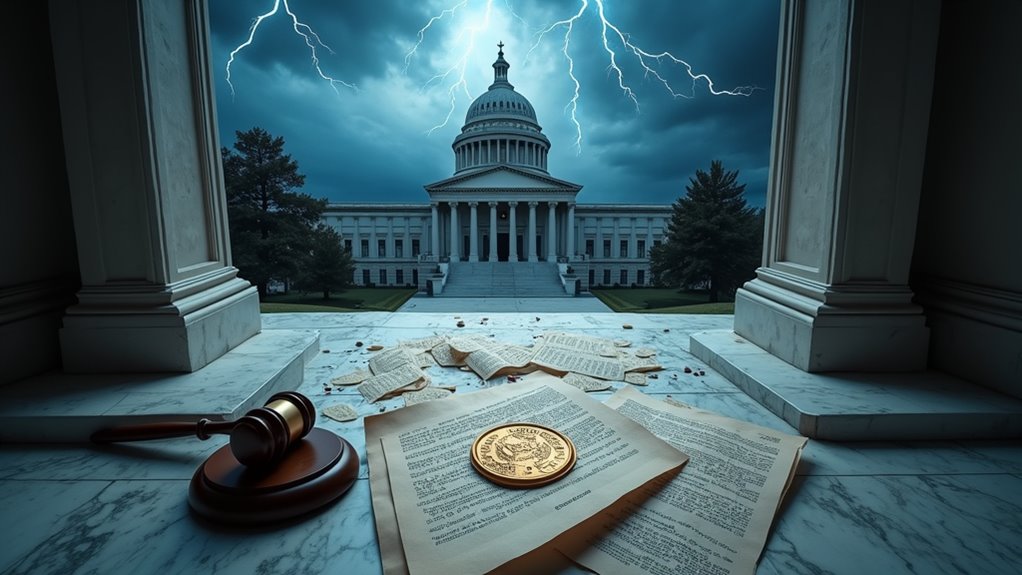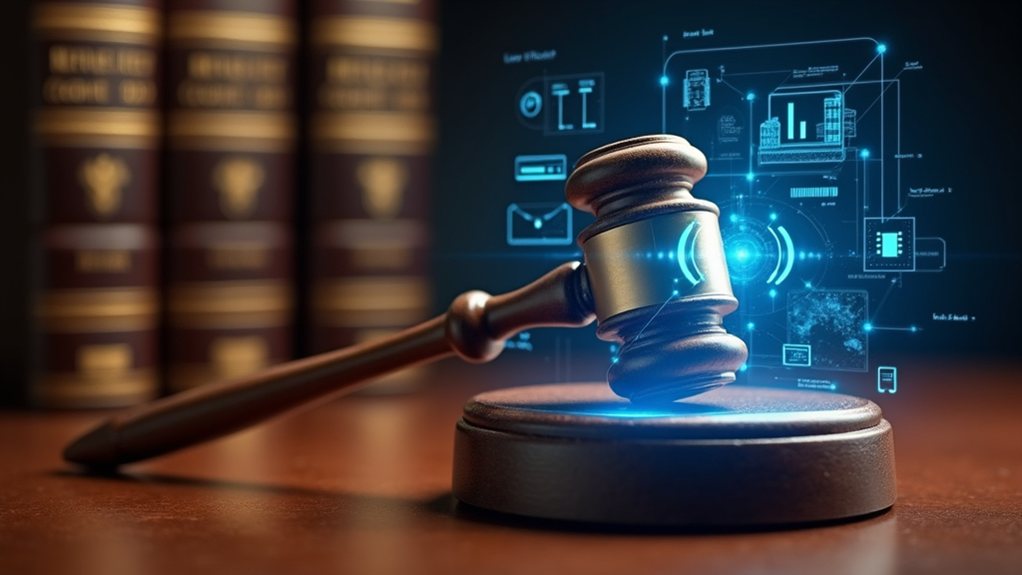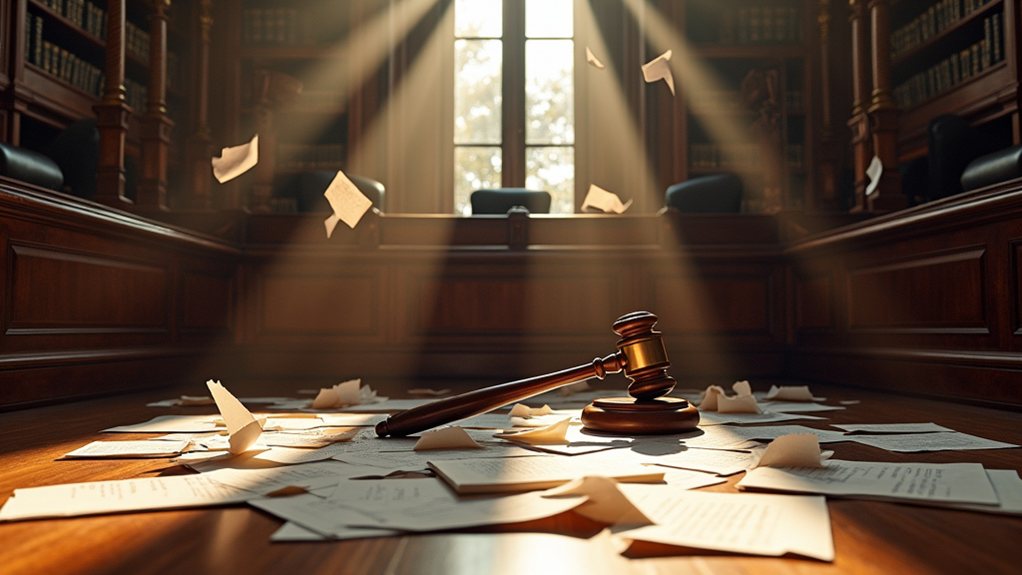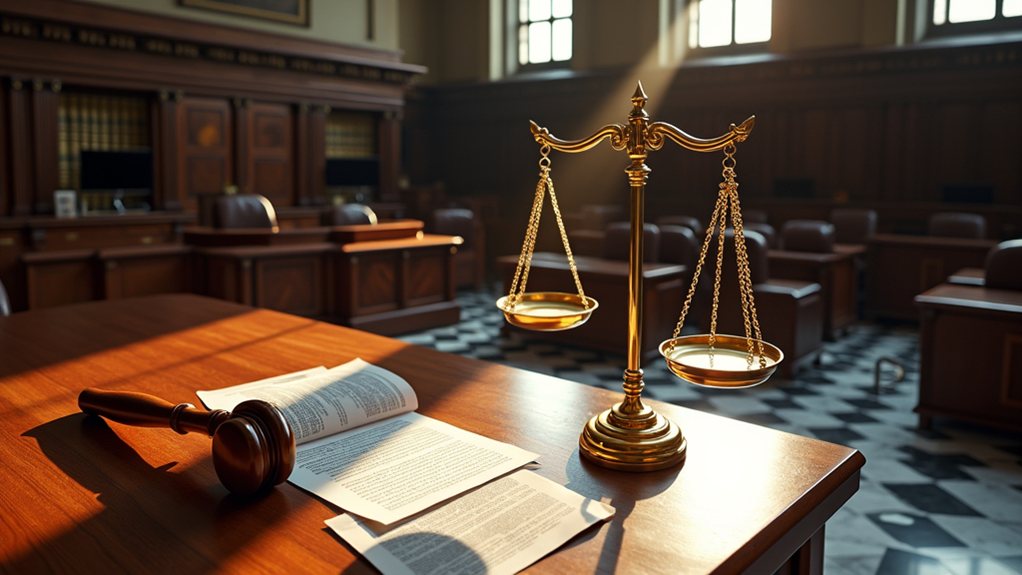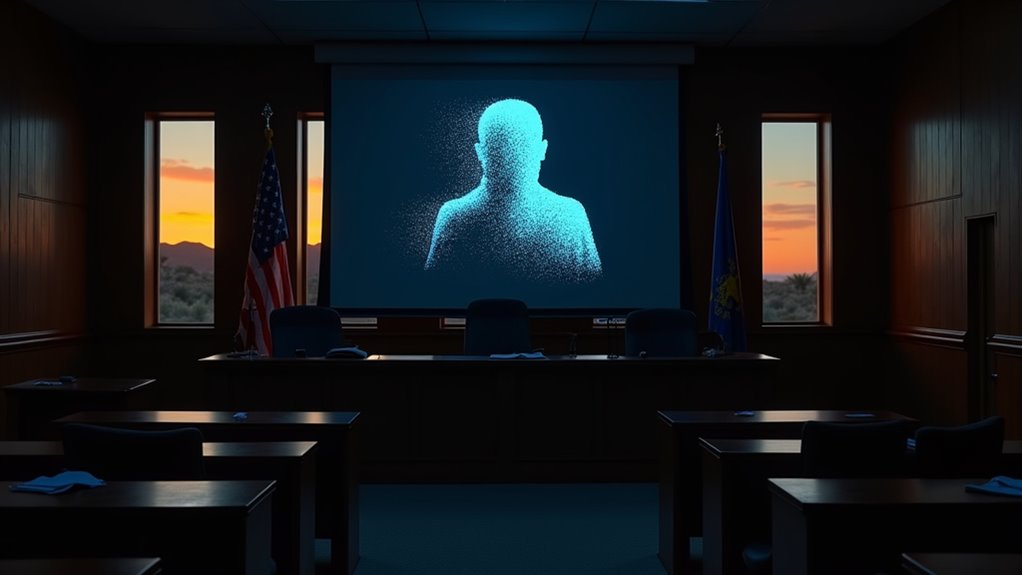Chaos hit the copyright world when the Copyright Office’s 2025 AI report flatly denied any copyright for AI-generated works—cue collective industry meltdown and a pink slip flying at the agency chief quicker than an AI spitting out Drake lyrics. Legal confusion reigns: publishers turn to cloaked NDAs, lawsuits over “who owns the training data?” pile up, and “public domain” is suddenly hotter than Taylor Swift tickets. Stay tuned for why nobody’s sure where all this is headed.
Courts stand firmly on the side of old-school human authorship. Machines can crank out thousands of images a second, but unless a bona fide human is behind the creative wheel, the work gets dumped straight into the public domain. The Copyright Office, not exactly known for spicy takes, has taken a surprisingly strong stance: if it’s just an algorithm making the magic, don’t expect a copyright certificate in your mailbox.
So what’s a creative industry to do when their latest AI-generated video game character or viral ad campaign isn’t protected? Well, for starters, publishers and marketers are leaning into contracts, trade secrets, and NDA agreements like never before. If you can’t copyright that AI-doodled cat, you can sure make people sign a form promising not to copy it. The lack of transparency issues in AI systems complicates understanding how generated content is created and whether it infringes on existing copyrights.
When copyright won’t cover your AI-made masterpiece, contracts and NDAs are the new creative industry shield.
And don’t even get started on proprietary AI models and training data—they’re the secret sauce, guarded more closely than Colonel Sanders’ chicken recipe. AI models engage in complex processing, and the Copyright Office has emphasized that this kind of expressive learning differs fundamentally from how humans learn creative works.
- No copyright? Rely on contracts
- *Trade secrets now the new gold standard*
- Legal headaches around who owns what
Meanwhile, lawsuits are flying faster than ChatGPT can generate a cease-and-desist letter. Major AI players—think OpenAI, Meta, and Stability AI—are all under fire for allegedly using copyrighted works as training data. Is it fair use or just plain theft? Courts are still scratching their heads. A security service is actively monitoring traffic, which means access to certain resources or sites can be unexpectedly restricted as part of broader efforts to prevent attacks.
And, if you thought the 2025 Copyright Office AI report would calm things down, think again. The report’s copyright rejection—and the immediate firing of the agency chief—has left the legal landscape messier than a toddler’s finger-painting session.
Stay tuned: this copyright drama is just getting started.
